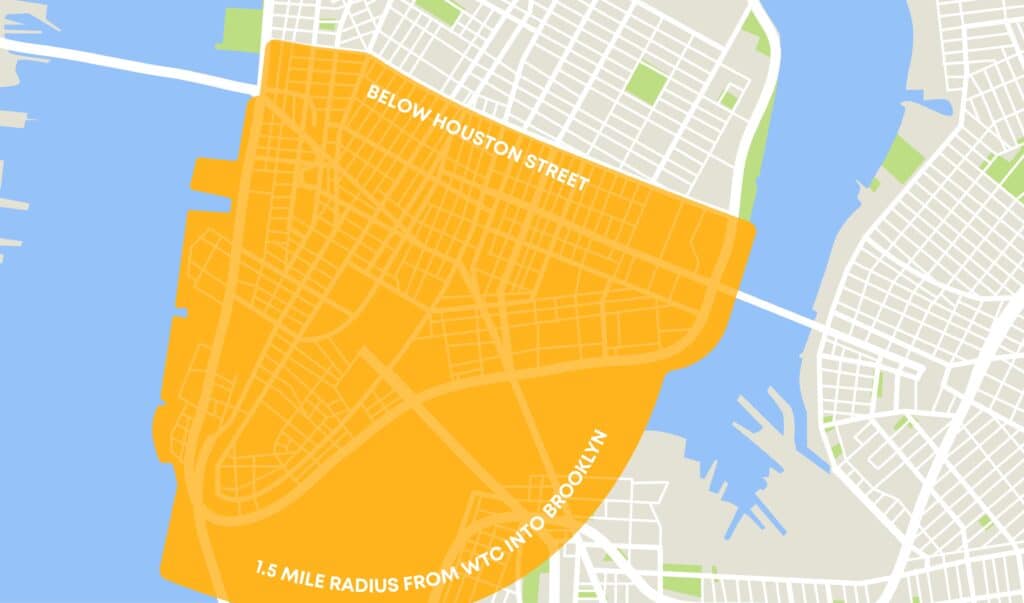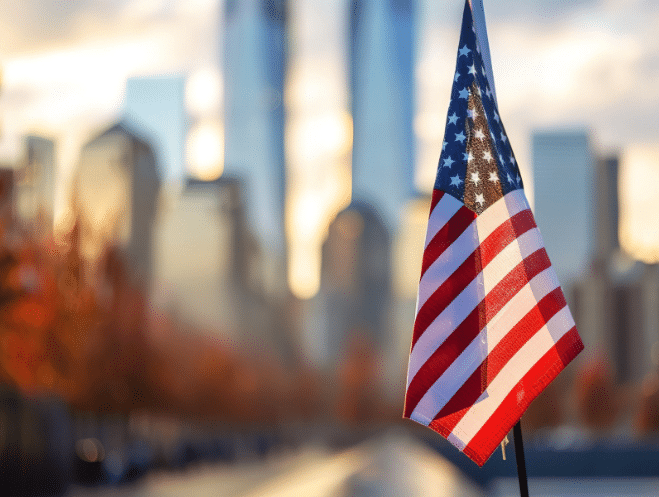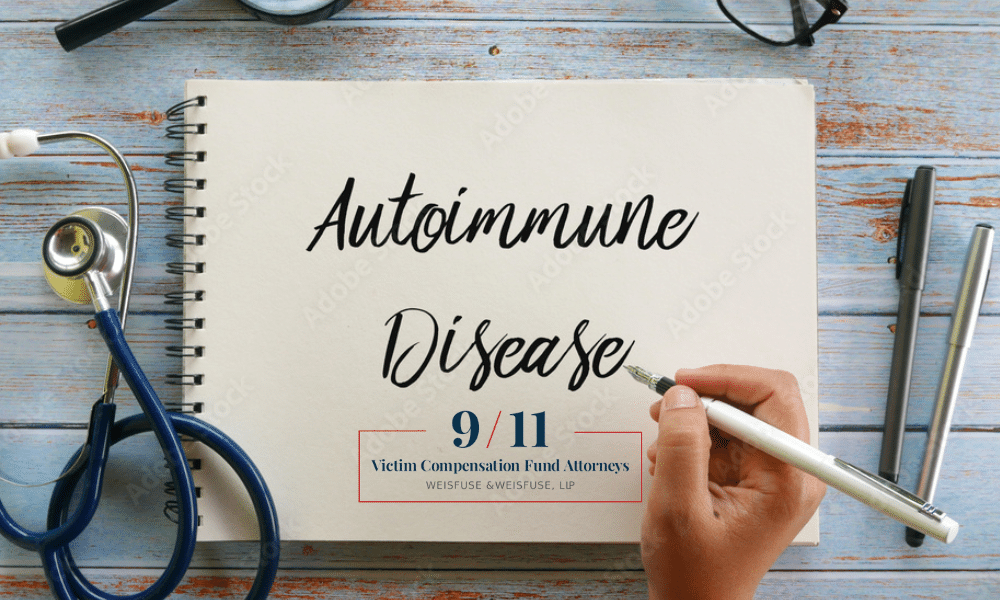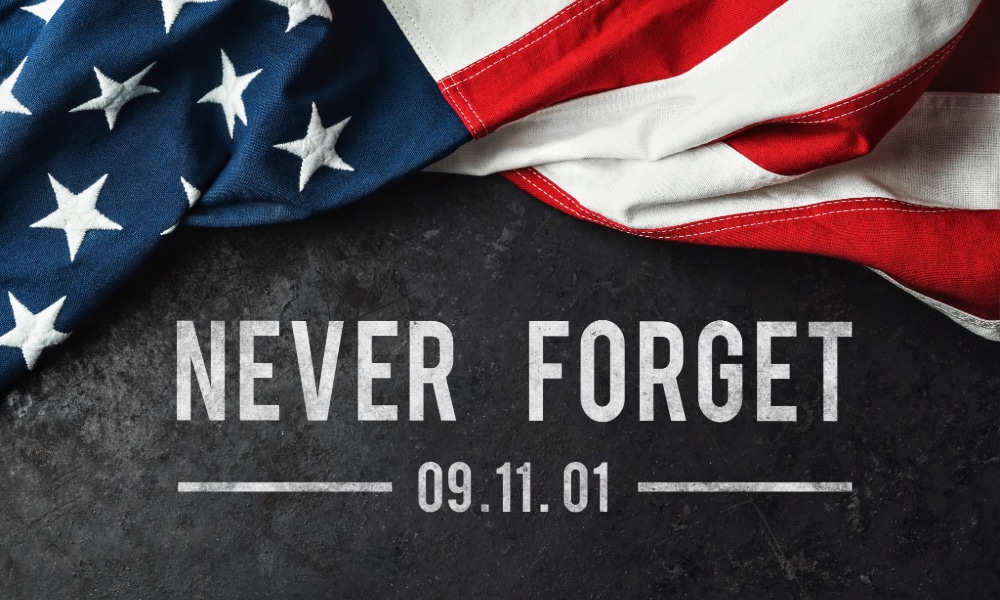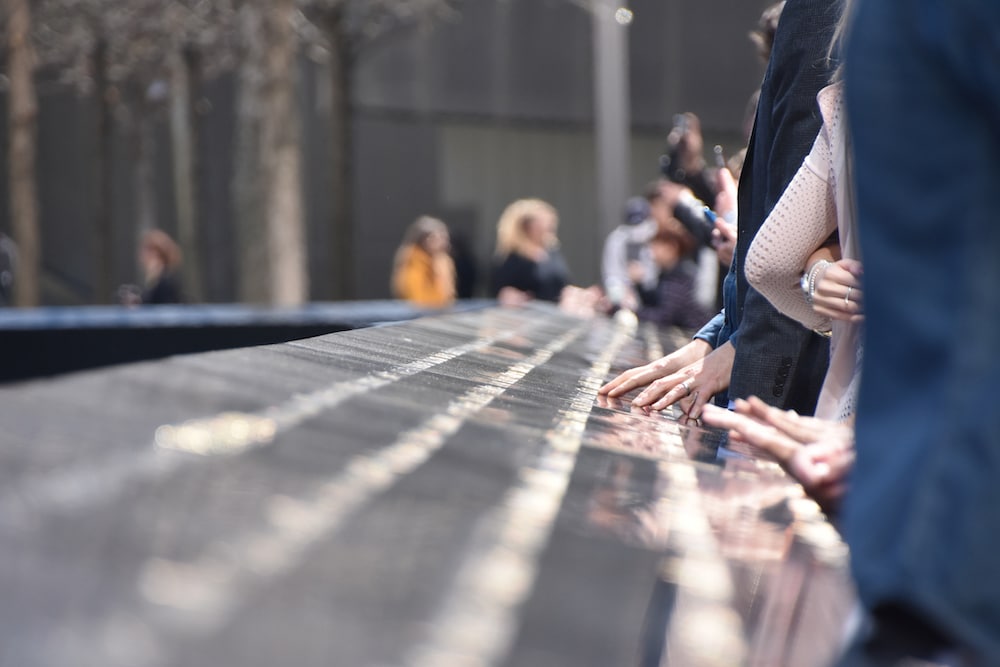
The 9/11 attacks were the deadliest on U.S. soil since the bombing of Pearl Harbor. One report sums up the stark damage by stating “The financial and emotional toll of the attacks were especially felt in New York City …The attack collapsed the twin towers, killing 2,792 people, injuring thousands more, and leaving many others homeless. Indeed, New York City witnessed the elimination of 100,000 jobs, and dealt with the need to remove 1.63 million tons of trash strewn across 16 acres of Lower Manhattan, and repair damage to major electrical, communication, and transportation infrastructure.”
In the wake of these attacks, a number of programs and studies were instituted to assess and/or address the needs of survivors, as well as the family members of those killed in the attack or who later succumbed to injuries or illnesses caused by contaminants or toxic dust. These include the WTC Health Registry, the World Trade Center Health Program, and the Victim Compensation Fund (VCF). Understanding the functions of each—and their requirements and timelines—can help victims and survivors get the full and fair compensation needed to move forward with their lives.
What is the World Trade Center Registry?
It is estimated that 400,000 people or more were directly exposed to the 9/11 World Trade Center disaster. The WTC Health Registry is a comprehensive survey of people who were exposed to those events. Established in 2002 by the federal Agency for Toxic Substances and Disease Registry and the New York City Health Department, it is designed to help health care professionals monitor the health of victims, as well as track and investigate 9/11-related illnesses.
It is funded by the National Institute of Occupational Health (NIOSH) and is located within a dedicated research unit of the NYC Health Department’s Division of Epidemiology.
Facts about the World Trade Center Health Registry include:
- 71,437 people who were directly exposed to the disaster voluntarily enrolled in the Registry
- Surveys are confidential, but the information provided by enrollees helps:
- Identify and track the long-term physical and mental health effects of 9/11
- Allow findings and recommendations to be shared with enrollees, the public, and policymakers
- Respond to health concerns and assess gaps in care for 9/11-related health problems
- Offer guidance to public health officials in planning for potential future emergencies
The surveys were done in five waves, including surveys for adults, adolescents, and parents of adolescents, with the intent to assess to “what extent physical and mental health conditions have persisted, and whether any new symptoms and conditions have emerged.” The first wave was completed by enrollees in 2003-2004. Wave 5 was completed in early 2021.
Enrollment in the Registry closed in 2004 and new participants are not being taken at this time. As stated in their website, “enrollment was always intended to be time-limited. All enrollees completed the same Wave 1 survey within the same time period. This helps provide a consistent basis of comparison for the next 20 years or more.”
What’s the difference between the World Trade Center Registry and the World Trade Center Health Program?
While the WTC Registry is primarily a fact-finding and information-sharing study (although they do have a Treatment Referral Program), the WTC Health Program “provides no-cost medical monitoring and treatment for certified WTC-related health conditions to those directly affected by the 9/11 attacks in New York, the Pentagon, and in Shanksville, Pennsylvania.” It also provides funding for medical research into 9/11-related mental and physical health conditions, including, among others, patterns of illness, risk factors for disease, and improvements in diagnoses and treatment.
Simply being enrolled in the Registry does not automatically mean that a person will get medical help or treatment from the WTC Health Program. The Health Program is dedicated to helping victims and survivors of the attacks. Eligibility for participation in the World Trade Center Health Program includes:
- Working, living, going to school, or in adult- or child-daycare in the NYC Disaster Area on 9/11 up to a date determined by length of exposure time in the disaster area
- Clean-up or maintenance workers who had exposure to the toxic dust cloud but were not general or first responders
- Employed in the disaster area and present on 9/11 and up to May 31, 2003
- New York Fire Department (NYFD) first responders present at ground zero, the Staten Island Landfill, or the NYC Chief Medical Examiner’s Office for a minimum of four hours between 9/11 and July 31, 2002
- New York Police Department (NYPD) and Port Authority Police who were present in Lower Manhattan (including ground zero) south of Houston Street**, the Staten Island Landfill, or on certain barge loading piers. Dates from 9/11 and length of exposure vary.
- Other general responders and employees of the NYC Chief Medical Examiner’s Office
- Completing and submitting a WTC Health Program application
Treatment and monitoring are offered for certified 9/11-related illnesses and conditions, including mental health issues, acute and traumatic injuries, airway and digestive disorders, certain cancers and for first responders, musculoskeletal disorders.
Registration in the WTC Health Program is required to get compensation
In addition to offering free treatment and medical monitoring, registration in the World Trade Center Health Program is required to apply for benefits and economic compensation through the Victims Compensation Fund (VCF). The “Never Forget the Heroes: James Zadroga, Ray Pfeifer, and Luis Alvarez Permanent Authorization of the September 11th Victim Compensation Fund” was signed into law in July 2019, The VCF Permanent Authorization Act extends the VCF’s claim filing deadline from December 18, 2020, to October 1, 2090, and appropriates such funds as may be necessary to pay all eligible claims.
Contact Weisfuse & Weisfuse, LLP For Help Today
Having the skill and experience in helping people get full and fair compensation for their 9/11 illnesses or injuries, as well as providing compassionate assistance for surviving family members, has brought financial security to victims throughout NYC and surrounding areas. To learn more about how we can help, please contact us online or call us at 212-983-3000 to schedule a free consultation to discuss your situation and your needs.
** Numerous advertisements and media outlets are informing New Yorkers about their possible eligibility for 9/11 benefits if they were in Lower Manhattan during the attacks and suffer from health conditions due to toxic dust exposure. At Weisfuse & Weisfuse LLP, we emphasize that the “exposure zone” isn’t limited to Canal Street but can extend further to Houston Street.
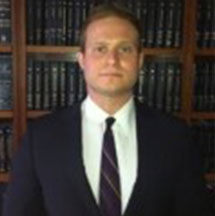
About Jason Weisfuse –
9/11 Victim Compensation Fund Attorney
About Jason Weisfuse –
9/11 Victim Compensation Fund Attorney
Jason E. Weisfuse is a seasoned 9/11 cancer attorney and managing partner at Weisfuse & Weisfuse, LLP, a New York City-based law firm dedicated to representing individuals affected by the September 11th attacks. Since the establishment of the September 11th Victim Compensation Fund (VCF), Jason has been instrumental in assisting first responders, survivors, and families in securing the compensation and medical benefits they deserve.
With a Juris Doctor from New York Law School (2009), Jason brings extensive experience regarding the 9/11 Victim Compensation Fund to his practice. His deep understanding of the VCF and the World Trade Center Health Program (WTCHP) has enabled him to navigate complex claims processes effectively, resulting in substantial awards for his clients.
Jason’s commitment to the victims in the 9/11 community is evident through his active involvement in professional organizations such as the New York State Trial Lawyers Association and the American Association for Justice. He has also contributed to legal discourse with publications in the New York Law Journal, reflecting his dedication to legal excellence and advocacy.
At Weisfuse & Weisfuse, LLP, Jason continues to provide compassionate and knowledgeable representation, ensuring that those affected by 9/11 receive the support and compensation they are entitled to.


